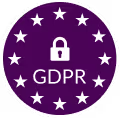Confident communication is more than just a soft skill—it’s a strategic advantage that makes or breaks careers. Yet, many professionals, regardless of their experience level, struggle with this crucial skill. The challenge often lies in a common but counterproductive habit: focusing on how they’re perceived rather than on their audience.
The self-consciousness trap
When helping clients improve their communication, I often find that their biggest obstacle is self-consciousness and self-judgment. Many professionals worry about how they come across—whether they appear smart enough, knowledgeable, or even competent. Research shows that 75% of people experience anxiety before a presentation, and this anxiety often stems from a fear of judgment. Even seasoned professionals start doubting and second-guessing themselves submitting to the imposter syndrome. This self-focus can be a significant barrier to effective communication as it detracts from the primary goal of communication: delivering a message that meets the audience’s needs.
What is confident communication?
Confident communication starts with a clear understanding of your goal. Whether you’re presenting to a large group, discussing issues with your manager, or leading a team meeting, the first step is to ask: What does my audience need from this interaction? Shifting the focus from yourself to your audience is the key to effective and confident communication.
For example, I once worked with a client who was nearing retirement but still dreaded giving presentations. Despite her extensive experience, she felt immense pressure to have all the answers and feared that any perceived shortcoming would undermine her credibility. Through our sessions, she realized that her audience wasn’t expecting her to know everything. Instead, they needed clear, concise information relevant to their concerns. This shift in focus not only reduced her anxiety but also significantly improved her presentation effectiveness. Letting go of the need to know all, of relentless self-judgment she started to feel lighter and enjoying the interactiveness of presenting to larger groups.
Knowing your audience
Understanding your audience is essential for effective communication. This understanding doesn’t come automatically—it requires preparation and research. Whether your audience is internal or external, taking the time to learn what they need to know is critical. This might involve tailoring your message to different levels of expertise within the group or focusing on the specific challenges they face.
We live in a world in which every message is targeted and personalized. 90% of U.S. consumers find marketing personalization appealing, and that same mentality applies to presentations. When people feel that you are delivering content that’s meant just for them, they’ll listen.
The power of simplicity and interaction
One of the most effective ways to enhance communication is by simplifying your message. Overloading your audience with information can lead to confusion and disengagement. Instead, focus on delivering a clear and concise message that addresses their core concerns. In many cases, less is more!
In addition to simplicity, fostering interaction during your communication can significantly boost engagement and understanding. Asking questions, encouraging feedback, and creating opportunities for your audience to confirm their understanding can help maintain their attention and ensure that your message resonates.
Preparing for success
Preparation is key to confident communication. Whether you’re delivering a presentation, leading a meeting, or having a one-on-one conversation, thorough preparation allows you to focus on your audience rather than your nerves. Rehearsing your material, anticipating questions, having a prepared response strategy for questions you cannot answer on the spot, and centering yourself before the interaction will help you become a more effective communicator.
A simple yet powerful technique is taking a few minutes before your presentation or meeting to center yourself. This could involve deep breathing, visualizing a successful outcome, or reflecting on the empathy you have for your audience. When you approach the interaction with positivity, empathy, and a genuine desire to serve your audience, your communication will naturally become more confident and impactful.
The role of storytelling
Storytelling is a critical tool in confident communication. People are 22 times more likely to remember a fact when it is wrapped in a story. By framing your key messages within a narrative, you can make your communication more memorable and persuasive. Think about what story will best convey your message and how you can walk your audience through it in a way that resonates with them.
Conclusion
Confident communication is not about appearing perfect or having all the answers. It’s about understanding your audience’s needs, simplifying your message, and delivering it with empathy and clarity. By shifting the focus from yourself to your audience, you can overcome self-consciousness and communicate more effectively. Remember, the goal is not to be the smartest person in the room but to be the most helpful—serving your audience with the information they truly need.
Ready to turn insights into impact?

















